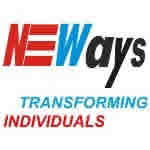|
|
Entrepreneurial Skills: Environmentally Sustainable Practices and Social Entrepreneurship Course
NGN 285,000Get 5.00% off
|
Venue: Lagos
Other Dates
| Venue | Date | Fee | |
|---|---|---|---|
| Lagos, Lagos State, Nigeria | 19 - 21 Aug, 2025 | NGN285000 | |
| Lagos, Lagos State, Nigeria | 18 - 20 Nov, 2025 | NGN285000 |
This course is designed to help participants evaluate the business skills and commitment necessary to successfully operate an entrepreneurial venture and review the challenges and rewards of entrepreneurship. Participants will learn about themselves, their decisions, and their goals to determine how entrepreneurship can play a role in their lives. Participants will also be introduced to entrepreneurship from an economic perspective and the concepts of environmentally sustainable practices and social entrepreneurship.
What differentiates exceptional administrators from the rest of the crowd? What does it take to be a star administrator? This course gives essential and in-depth practical techniques that will enable you to excel at your workplace. In this course, you will learn multi-disciplinary best practices such as how to be a better business writer and a master communicator. Moreover, you will thoroughly have the chance to discuss the effects of stress at the workplace and ways to turn stress to an advantage. You will also learn how mastering your effective usage of time will inevitably enhance your productivity and lower your stress level. Finally, you will delve into how to organise and run an effective and professional meeting.
Course objectives
At the end of this course delegates would have mastered:
- Conceptual thinking
- Balanced decision making
- Quality orientation
- Understanding of prospects’ motivation
- Persuading others
- Self development
- Business writing
- Self management
- Time management
- Meeting management
- Discuss the attitudes, values, characteristics, behaviour, and processes associated with possessing an entrepreneurial mindset and engaging in successful appropriate entrepreneurial behaviour.
- Discuss what is meant by entrepreneurship and innovation from both a theoretical and practical perspective, and the role of the entrepreneur in the new enterprise creation process.
- Describe the ways in which entrepreneurs perceive opportunity, manage risk, organise resources and add value.
- Develop a plan for implementing entrepreneurial activities in a globalised and competitive environment being responsible for social, ethical and culture issues.
- Critique a plan for implementing entrepreneurial activities in a globalised and competitive environment being mindful of the social, ethical and culture issues.
- Engage in a continuing learning process through the interaction with peers in related topics, as individuals and as team members.
Course Outlines
- Screening Business Opportunities through deep business knowledge informed and infused by cutting edge research, scaffolded throughout this program acquired from personal interaction with research active educators and entrepreneurs.
- Entrepreneurial critical thinking and problem solving steeped in research methods and rigor based on empirical evidence and the scientific approach to knowledge development demonstrated through appropriate and relevant assessment
- Career and leadership readiness technology savvy professional and, where relevant, fully accredited forward thinking and well informed tested and validated by work based experiences
- Intercultural and ethical competency adept at operating in other cultures comfortable with different nationalities and social contexts
- Able to determine and contribute to desirable social enterprise outcomes demonstrated by an understanding of indigenous knowledge and trends.
- Self-awareness and emotional intelligence
- A capacity for self-reflection and a willingness to engage in self-appraisal
- Open to objective and constructive feedback from supervisors and peers able to negotiate difficult social situations, diffuse conflict and engage positively in purposeful debate
- Managing time
- Identifying and eliminating time wasters
- Setting goals and priorities
- Using measures to control and improve your effectiveness
- Planning and managing time for self and others
- Preparing time logs and learning from them
- Organizing meetings
- Elements of an effective meeting
- Preparing the agenda
- Meeting common time wasters
- Taking minutes of meetings
- Responsibilities of meeting leaders and participants
Methodology
Case studies, self-evaluation exercises, application of service quality tools, video clips with debriefs, oral and written questions resulting in debates and more are all used in this course in addition to brief consultant and participant presentations.
Course Booking
Please use the “book now” or “inquire” buttons on this page to either book your space or make further enquiries.
| Lagos | May 27 - 29 May, 2025 |
| Lagos, Lagos State, Nigeria | 19 - 21 Aug, 2025 |
| Lagos, Lagos State, Nigeria | 18 - 20 Nov, 2025 |
| NGN 285,000.00 | (Foreign Participant($550)The program fees covers tuition, Course Materials, Tea/Coffee Break, Lunch, Bag, Certificate of participation and administration) |
Dr Chris Egbu +2348023194131
Tags: |
Entrepreneurial Skills Environmentally Sustainability Social Entrepreneurship Business Development Lagos Nigeria |
Related Courses
 Logistics for Management Consultants - a Practical Guide Training
Logistics for Management Consultants - a Practical Guide Training
3 days, 06 - 08 May, 2025
Newways Consulting
 Current Issues in Pension Administration and Retirement Planning Workshop
Current Issues in Pension Administration and Retirement Planning Workshop
3 days, 01 - 03 Jul, 2025
Newways Consulting
 Creativity, Critical Thinking and Problem Solving Course
Creativity, Critical Thinking and Problem Solving Course
3 days, 27 - 29 May, 2025
Newways Consulting
Currency Converter




